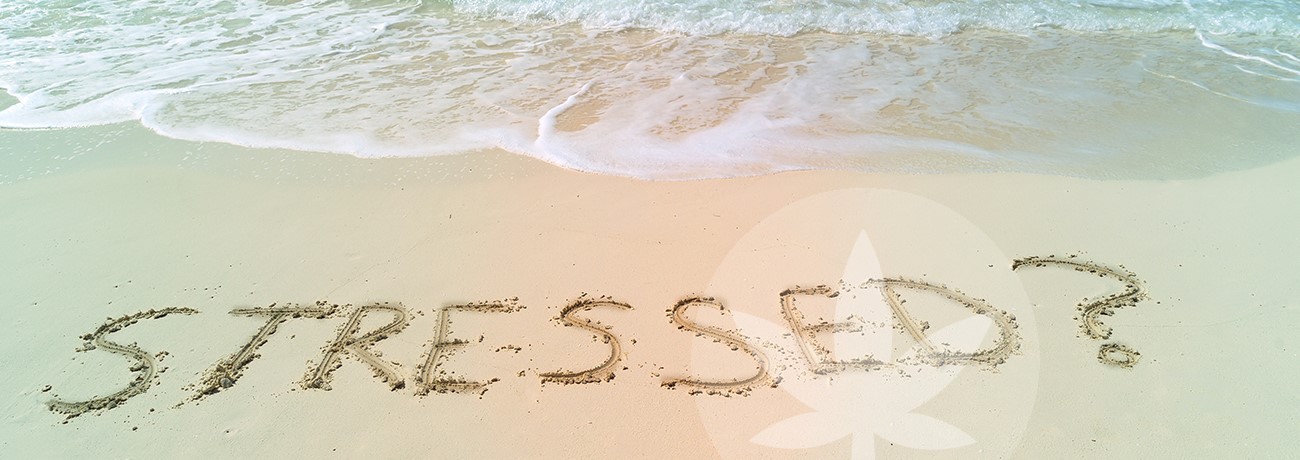4 Simple Principles To Keep Stress Under Control
Last updated:
Published:
Chronic stress in a modern world
Life is stressful. Relationships, work, exercise, illness—all of these elements put our body under stress. In the case of exercise and disease, stress is predominantly physical. Our bodies have to work harder in these conditions. The same applies to work and relationships; this time, however, stress can be more emotional or psychological.

It is okay to feel stressed. It may sound surprising, but stress isn’t something we should try to avoid completely either. Both our body and mind have several processes that are designed to kick in during short periods of stress. Stress can provide focus, increase your heart rate, and boost your immune system. The problems occur when stress does not go away.
Prolonged periods of stress wear us down. We become more prone to health issues, irritability, tiredness, and can overindulge. The latter can further compound lifestyle choices that cause us to continue feeling stressed. Before we know it, the cycle is perpetuating, and it seems impossible to break.
How do you know if you’re stressed?
Acute periods of stress can be easy to spot—many of us will notice the difference in our behaviour or reactions. Our stress can manifest as feelings of pressure, anxiety, and worry. It is not unusual to feel a mixture of these emotions when a deadline at work is approaching, or when we are frustrated by our partner's actions.
Symptoms of persistent stress can be significant. Everyone copes differently, but long, drawn-out periods of stress can make us feel fatigued, depressed, dizzy, or have difficulty breathing. Further implications include loss of libido, difficulty sleeping, overeating, and in some cases, chest pain. Although the negative impact on health is substantial, all periods of stress can be managed. You just need to know how. This is where the BAMA method comes in.
Managing stress using the BAMA method
The first thing to know about this structured approach to managing stress is it is not based on anecdotal accounts or traditional remedies. Careful and precise scientific research has taken place to measure specific parameters related to stress. Quality of life, mood, cytokine levels, and cell production have all been accounted for. By adopting the four simple principles listed below, patients have seen a clear reduction in their stress levels.
First up is “body”. This involves spending time outdoors—usually in a peaceful surrounding—embracing life and getting mild exercise, all while you enjoy the beauty and serenity of nature.
Next, we need to tackle our “awareness” of stress. This stage is all about meditation and mental downtime—developing a greater perception of what it is that stimulates a stress response and being mindful of your surroundings.
Building on from awareness is “mind”. Our focus for this stage is understanding how our brain reacts when we are stressed. By focussing on positive thoughts and rewarding activities, we can boost neurotransmitters that help us feel good.
Finally comes “art”. Think of art as your inner feelings, what makes you, you. The aim is to channel your energy into an activity and let your inner flow take over. While art is an ideal activity for achieving this, anything creative works. By being creative, we focus the mind, removing the thoughts that may be causing us stress.
In combination, all four of these actions can help us to manage stress when it occurs. Remember, we can never remove stress completely. It is part of what makes us human. A far more sustainable and beneficial approach is to know when our bodies are stressed, and support them in naturally restoring a balanced state.
B: Body—embracing nature
Body is one of the categories we are most likely to avoid. Modern society is doing its best to eradicate our desire to enjoy nature and prepare hearty and wholesome meals. If we’re not going to be beaten by stress, then why let the pressure of a modern lifestyle beat us either?
A calming breeze, the chirping of birds, and (depending on the time of year) hopefully some sun on your face… Taking deep breaths as you stride forward, you can feel with every step how stress slowly leaves your body. You don’t need a destination, and you don’t need to be out in the wilderness for hours. Just make sure you pause at least once to take in your surroundings.
Don’t worry if you live in an urban or semi-rural area. A behavioural study on “Levels of Nature and Stress Response” has already taken place. Results found that managed nature in urban settings can also support a reduction in stress. Nevertheless researchers concluded that “for many, natural environments may be useful in their attempts to reduce their levels of stress”.
A: Awareness—knowing how and when stress can creep up on you
To support the efficacy of awareness, the Journal of Psychosomatic Research published a comprehensive review of 64 studies linked to MBSR (mindfulness-based stress reduction). They didn’t just take each study on its own merit. All 64 were heavily scrutinised to make sure they were relevant and that the data was of acceptable quality. The purpose of the review was to establish whether a greater awareness of stress triggers would reduce their negative impact and improve patients' ability to cope with repeated stress. They concluded that “MBSR may help a broad range of individuals to cope with clinical and non-clinical problems”.
Further support for the effectiveness of mindfulness comes from a study supported by the Canadian Breast Cancer Research Institute. Not only did it back a similar conclusion to the review above, but it was “the first to show changes in cancer-related cytokine production. The reduction was the direct result of adherence to a mindfulness program”.

Although cytokines are essential for our immune system to work correctly, too many proinflammatory cytokines can contribute to diseases like cancer. You can read more about the mechanics and impact of cytokine production here.
M: Mind—the science behind our brain's reaction to stress
Thinking positively has been shown to stimulate the production of certain chemicals in our brain. In doing so, we experience reduced stress levels and the ability to tackle mental block. By taking part in pleasurable, rewarding, or creative activities, dopamine, phenethylamine, and serotonin are released. Dopamine supports our brain's ability to think up new ideas, while phenethylamine supports our natural brain chemistry. The latter, serotonin, contributes to feelings of wellbeing and positivity.
To support your natural biological processes, try to consume wholesome, healthy foods. Rich in nutrients and vitamins, they encourage the production of those beneficial neurochemicals. If you are not sure where to start when it comes to a natural diet, our blog on Blue Zone diet has all the information you need.
A: Art—creativity and flow
Think of the last time you put pen to paper, picked up a paintbrush, wrote a letter, built Legos with your children, or even assembled flat-pack furniture. During all of those activities, our minds become quiet; we are focussed on the task at hand, invoking only the thoughts and feelings necessary to conceptualise our ideas. It doesn't need to be a masterpiece; the purpose of these activities is the act, not always the result.
Don’t just take our word for it, though. An article published in Psychology Today found that 45 minutes of “art making” resulted in lower stress levels, regardless of artistic abilities. In total, 39 adults aged 18–59 were asked to make “art of any type”.
To quantify a reduction in stress, researchers monitored cortisol levels. Cortisol is a hormone that is released by our body when we are stressed. After the 45 minutes were up, results showed that “75% of the participants had lower cortisol levels”. To support the idea that the art doesn't need to be award-winning, researchers also found that “prior experience did not seem to matter in the outcome”.
Together, in isolation or as a combination, adopting these simple-to-follow principles has been scientifically proven to reduce stress. When was the last time you gave some focus and attention to your body, awareness, mind, and art?







.png)







